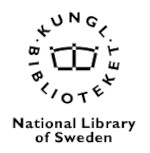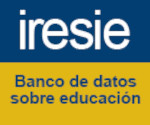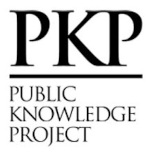Reflections on Authority: A Dialogue between Hannah Arendt and Jacques Lacan
DOI:
https://doi.org/10.5020/23590777.rs.v18iEsp.6465Palavras-chave:
autoridade, verdade, política, psicanáliseResumo
This article aims to formulate a notion of authority regarding the psychoanalytic treatment of Lacanian orientation. To do this, we dialogue with Hannah Arendt’s theory. First, we address the distinction between authority in the private and public spheres. Considering that authority is an effect of the hierarchy, which is established from the difference between its levels, it is presented in a natural way in the private sphere, which welcomes the differences. In the public sphere, equality is the determining factor, making it necessary to establish the difference. Then we approach the Roman strategy for establishing authority in politics, namely, its source is an external element to the relationship between rulers and ruled, in this case, the foundation of the city of Rome. Finally, we emphasize the conception of political authority established by the actors of the American Revolution, who shifted the source of authority from the founding act of the ancestors to their own founding act, which is represented by the Constitution of the United States as a result of mutual commitments established between the actors of that body politic. Thus, Arendt postulates that authority results from a hierarchy and that its source is external to the relationship between leaders and leaders, even if that source is not placed as a superior or absolute parameter, but derives from the mutual commitment between individuals acting in concert. From there, we analyze the relation between authority and truth in the Lacanian work, considering that the latter derives from the division between the grammatical and enunciation subjects, which means to maintain this notion in the field of language and to refuse the necessity of a metalanguage. In addition, we take into account the author’s propositions on the authorization of the analyst. Finally, we conclude that legitimate authority in psychoanalytic treatment comes from the manifestation of the truth of the subject of the unconscious as a third place in relation to the analyzer and the analyst, as well as the relation of truth to the transmissible knowledge that takes place at the end of the analysis. Our methodology is the bibliographical research, guided by the search for inspiration of the Lacanian-oriented psychoanalysis by Arendtian political theory.
Downloads
Referências
Arendt, H. (2004). Responsabilidade e julgamento. São Paulo: Companhia das Letras.
Arendt, H. (2009). Entre o passado e o futuro. São Paulo: Perspectiva. (Originalmente publicado em 1954)
Arendt, H. (2010). A condição humana. Rio de Janeiro: Forense Universitária. (Originalmente publicado em 1958)
Arendt, H. (2011). Sobre a revolução. São Paulo: Companhia das Letras. (Originalmente publicado em 1963)
Barbour, C., & Pavlich, G. (2010). Introdução. In C. Barbour, & G. Pavlich,. (Orgs). After sovereignty: On the question of political beginnings (pp. 1-11). New York: Routledge.
Benhabib, S. (2003). The reluctant modernism of Hannah Arendt. Maryland: Rowman & Littlefield Publishers.
Berkowitz, R. (2013). Misreading Eichmann in Jerusalem. The New York Times. Retrieved from http://opinionator.blogs.nytimes.com/2013/07/07/misreading-hannah-arendts-eichmann-in-jerusalem/?_php=true&_type=blogs&_r=0
Brunkhost, H. (2002). Equality and elitism in Arendt. In D. Villa., (Org.) The Cambridge Companion to Hannah Arendt (pp. 178-199). New York: Cambridge University Press.
Canovan, M. (2002). Hannah Arendt: A reinterpretation of her political thought.New York: Cambridge University Press.
Cooper, M. (2013). At city ballet and elsewhere, in jokes takes the stage. The New York Times. Retrieved from www.nytimes.com/2013/12/29/arts/dance/at-city-ballet-and-elsewhere-in-jokes-take-the-stage.html?_r=0>.
Goldenberg, R. (2006). Política e psicanálise. Rio de Janeiro: Zahar.
Iannini, G. (2013). Estilo e verdade em Jacques Lacan: 4 (Filô). Rio de Janeiro: Autêntica.
Freud, S. (2011). Psicologia das massas e análise do eu. Psicologia das massas e análise do eu e outros textos (1920-1923) (pp. 13-113). São Paulo: Companhia das Letras. (Originalmente publicado em 1921)
Gana, N. (2013). Introduction: Collaborative revolutionism. In N. Gana., (Org.) The making of the Tunisian revolution (pp. 1-31). Edinburgh: Edinburgh University Press.
Lacan, J. (2008). O seminário, livro 11: Os quatro conceitos fundamentais da psicanálise (1963-64). (M. D. Magno, Trad.). Rio de Janeiro: Jorge Zahar.
Lacan, J. (1992).O seminário, livro 17: O avesso da psicanálise (1969-70). (A. Roitman, Trad.). Rio de Janeiro: Jorge Zahar.
Lacan, J. (1998). Subversão do sujeito e dialética do desejo no inconsciente freudiano. In Escritos (pp. 807-843, V. Ribeiro, Trad.). Rio de Janeiro: Jorge Zahar. (Originalmente publicado em 1960)
Lacan, J. (2003).Proposição de 9 de outubro de 1967 sobre o psicanalista da Escola. In Outros escritos (pp.248-264, V. Ribeiro, Trad.). Rio Janeiro: Jorge Zahar.
Lacan, J. (2003). Televisão. In Outros escritos (pp. 508-543, V. Ribeiro, Trad.). Rio Janeiro: Jorge Zahar. (Originalmente publicado em 1974)
Milner, J-C. (1996) A Obra Clara, Lacan, a ciência, a filosofia. Tradução de Procópio de Abreu. Rio de Janeiro: Jorge Zahar Ed.
Schell, J. (2011). Apresentação. In H. Arendt. Sobre a revolução (pp. 11-32). São Paulo: Companhia das Letras.
Wellmer, A. (2000). Arendt on Revolution. In D. Villa. (Org.), The Cambridge Companion toHannah Arendt (pp. 220-241). New York: Cambridge University Press.
Young-Bruehl, E. (2004). Hannah Arendt: For the love of the world. New Haven: Yale University Press.
Downloads
Publicado
Como Citar
Edição
Seção
Licença
Para autores: Cada manuscrito deverá ser acompanhado de uma “Carta de submissão” assinada, onde os autores deverão declarar que o trabalho é original e inédito, se responsabilizarão pelos aspectos éticos do trabalho, assim como por sua autoria, assegurando que o material não está tramitando ou foi enviado a outro periódico ou qualquer outro tipo de publicação.
Quando da aprovação do texto, os autores mantêm os direitos autorais do trabalho e concedem à Revista Subjetividades o direito de primeira publicação do trabalho sob uma licença Creative Commons de Atribuição (CC-BY), a qual permite que o trabalho seja compartilhado e adaptado com o reconhecimento da autoria e publicação inicial na Revista Subjetividades.
Os autores têm a possibilidade de firmar acordos contratuais adicionais e separados para a distribuição não exclusiva da versão publicada na Revista Subjetividades (por exemplo, publicá-la em um repositório institucional ou publicá-la em um livro), com o reconhecimento de sua publicação inicial na Revista Subjetividades.
Os autores concedem, ainda, à Revista Subjetividades uma licença não exclusiva para usar o trabalho da seguinte maneira: (1) vender e/ou distribuir o trabalho em cópias impressas ou em formato eletrônico; (2) distribuir partes ou o trabalho como um todo com o objetivo de promover a revista por meio da internet e outras mídias digitais e; (3) gravar e reproduzir o trabalho em qualquer formato, incluindo mídia digital.
Para leitores: Todo o conteúdo da Revista Subjetividades está registrado sob uma licença Creative Commons Atribuição (CC-BY) que permite compartilhar (copiar e redistribuir o material em qualquer suporte ou formato) e adaptar (remixar, transformar e criar a partir do material para qualquer fim) seu conteúdo, desde que seja reconhecida a autoria do trabalho e que esse foi originalmente publicado na Revista Subjetividades.





















